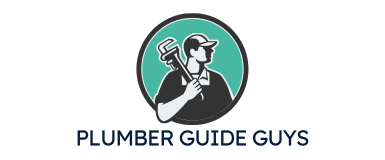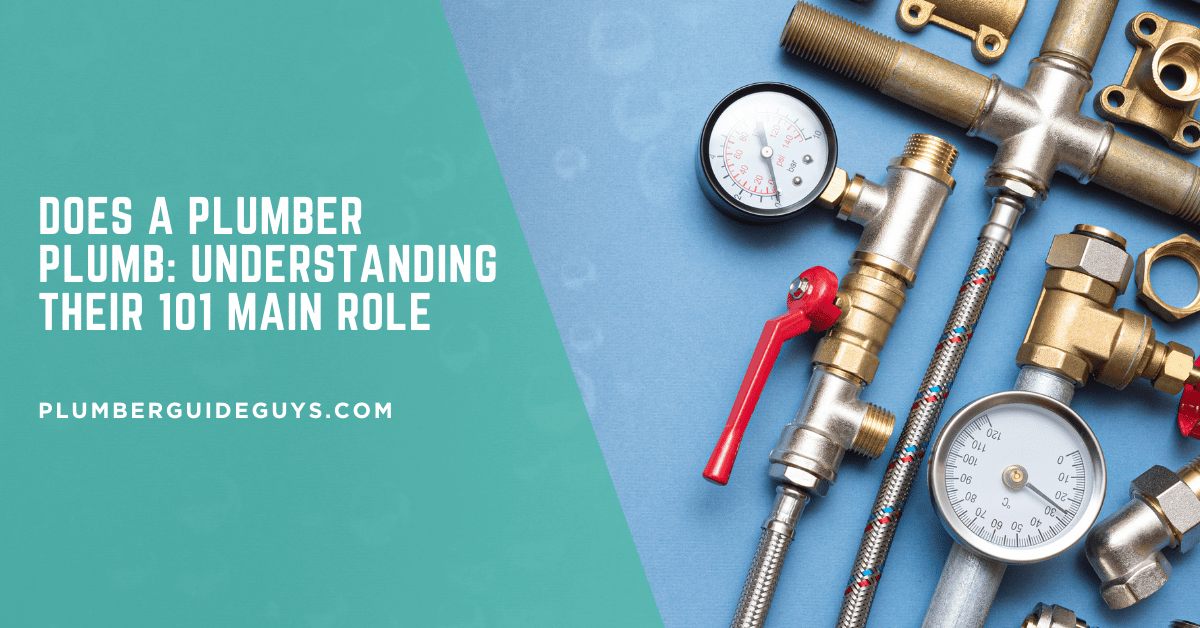Affiliate Disclosure
Plumber Guide Guys is a participant in the Amazon Services LLC Associates Program, an affiliate advertising program designed to provide a means for sites to earn advertising fees by advertising and linking to Amazon.
Does A Plumber Plumb? Ever thought about what plumbers do beyond fixing leaks? Plumbing services are much more than fixing pipes. They are key to keeping our homes and businesses running well.
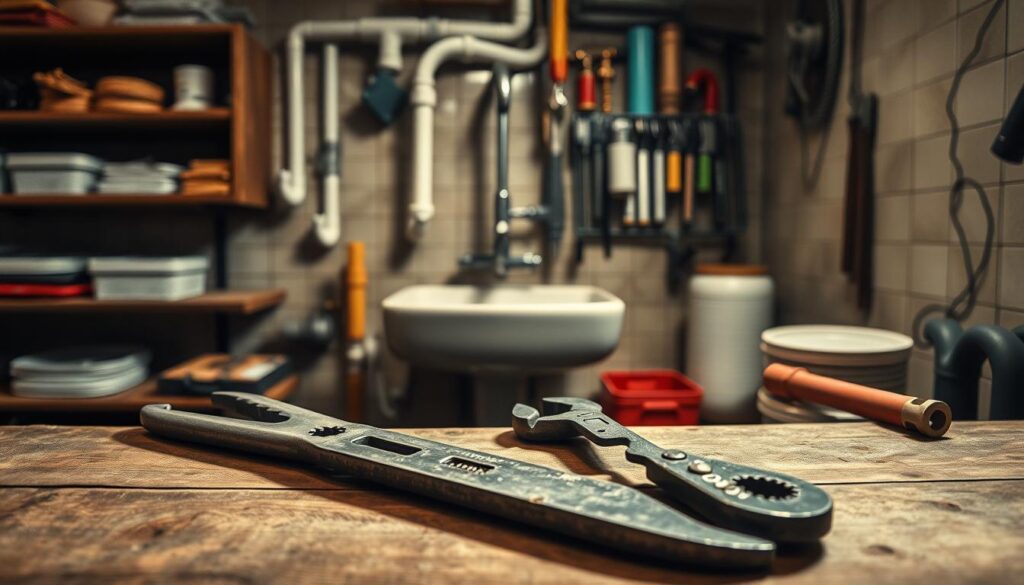
When you ask “does a plumber plumb,” you get a glimpse into a vital job. Plumbers are more than just repairmen. They design, install, and fix complex systems we need every day.
Plumbers are essential for keeping our water and waste systems safe and working right. They work in homes and big buildings, needing special skills and knowledge.
Key Takeaways
- Plumbers provide complete infrastructure maintenance services
- Professional plumbing involves complex system design and installation
- Their work ensures public health and safety standards
- Plumbing services require extensive technical training
- They diagnose and resolve critical system challenges
Table of Contents
Understanding the Core Functions of Professional Plumbing
Plumbers are key to keeping our water and waste systems working right. They do more than just fix pipes. They have a wide range of skills and keep important systems running.
Plumbing is about complex systems we all rely on every day. Plumbers manage water flow, waste, and key connections. These are things we often don’t see but can’t live without.
Defining the Scope of Plumbing Work
Plumbers do more than just fix leaky faucets. Their job includes:
- Installing complex water and waste systems
- Diagnosing technical problems in buildings
- Ensuring safety codes are followed
- Maintaining critical infrastructure
Essential Skills and Knowledge Requirements
Good plumbers need a mix of technical know-how and problem-solving skills. They must understand:
- Advanced pipe and fixture technologies
- Complex system design principles
- Safety protocols and regulations
- Diagnostic and repair techniques
Role in Modern Infrastructure
Plumbers are true unsung heroes. Their precise work keeps us safe by ensuring clean water and proper waste management. They protect communities from health risks.
Plumbing is not just a trade—it’s a critical service that protects public wellness and environmental sustainability.
Does A Plumber Plumb: Breaking Down Their Daily Tasks
When you think about what plumbers do, you might wonder if they just work with pipes. Plumbers do a lot more than that. They have many skills and knowledge to keep water systems working well in homes and businesses.
Plumbers have many tasks that need precision and technical skills. They spend their days finding and fixing problems in plumbing systems. Their work can be anything from fixing small leaks to setting up big systems in commercial buildings.
- Inspecting plumbing systems for problems
- Installing water heaters and fixtures
- Repairing damaged pipes and drainage systems
- Conducting leak detection and prevention
- Ensuring compliance with local building codes
A plumber’s day can be filled with different challenges. They use special tools to find and fix problems. This includes advanced camera tools and old-fashioned wrenches and pipe cutters.
| Task Category | Primary Responsibilities | Required Skills |
|---|---|---|
| Installation | New pipe systems, fixtures, appliances | Technical precision, blueprint reading |
| Repair | Fixing leaks, replacing damaged components | Problem-solving, diagnostic abilities |
| Maintenance | Preventative system checks, cleaning | Detailed observation, systematic approach |
Professional plumbers are like health experts for water and waste systems. They make sure everything works well in homes and businesses.
Key Responsibilities in Residential and Commercial Settings
Plumbing experts are key in keeping homes and businesses running well. They handle a variety of plumbing services. These services ensure water systems work efficiently.
Plumbers face many challenges, from small homes to big buildings. They have the skills needed for both. This helps owners understand the importance of their work.
Installation and System Setup
Installing plumbing needs skill and knowledge. At home, plumbers do:
- Water supply line connections
- Fixture installations
- Drainage system configurations
- Sewage line connections
Commercial plumbing is more complex. It involves bigger pipes, industrial tools, and strict rules.
Maintenance and Repairs
Maintenance stops big problems before they start. Plumbers check systems to:
- Finding weak spots
- Replacing old parts
- Keeping water pressure right
- Stopping water damage
Emergency Response Services
When plumbing problems pop up, plumbers act fast. Quick response times help avoid big damage and keep things running smoothly.
Types of Plumbing Services and Specializations
Plumbing services cover a wide range of skills and expertise. Professional plumbers develop unique abilities for different settings and client needs. Knowing the variety of plumbing work shows the complexity of this trade.
Plumbing has many specializations, each needing its own set of skills:
- Residential Plumbing: Deals with home water and drainage systems
- Commercial Plumbing: Manages complex systems for businesses and public areas
- Industrial Plumbing: Handles large mechanical and process piping systems
- Green Plumbing Technologies: Uses sustainable and water-saving solutions
Each area needs its own technical knowledge and problem-solving skills. Residential plumbers fix issues in single-family homes, like leaky faucets and water heater setups. Commercial plumbers handle bigger challenges in office buildings and hospitals.
Industrial plumbing requires advanced skills for managing complex piping in big facilities. Green plumbing focuses on water-saving technologies and eco-friendly installations.
Plumbing is not just about fixing pipes—it’s about creating efficient, sustainable solutions for diverse environments.
Tools and Equipment Essential for Plumbing Work
Professional plumbers need a wide range of tools to do their job well. The right tools make tough plumbing jobs easier and more efficient. Knowing what tools are important is key for anyone interested in plumbing.
Every plumber has a special set of tools for different jobs. The essential toolkit includes several key instruments that help get the job done right.
Hand Tools and Basic Equipment
Your basic plumbing tools should include:
- Pipe wrenches for gripping and turning pipes
- Adjustable pliers for versatile gripping
- Pipe cutters for precise measurements
- Hacksaw for cutting through tough materials
- PTFE tape for creating leak-proof seals
Advanced Diagnostic Tools
Modern plumbing needs advanced tools for diagnosing problems. Professionals use high-tech inspection cameras to see inside pipes, find hidden issues, and give accurate reports without causing damage.
Safety Equipment and Protective Gear
Keeping yourself safe is very important in plumbing. Essential safety gear includes:
- Protective eyewear
- Heavy-duty work gloves
- Steel-toed boots
- Respirators for dangerous environments
- Waterproof protective clothing
Buying quality tools and safety gear shows you’re serious about doing a great job in plumbing. It ensures you work well and stay safe.
Education and Training Requirements
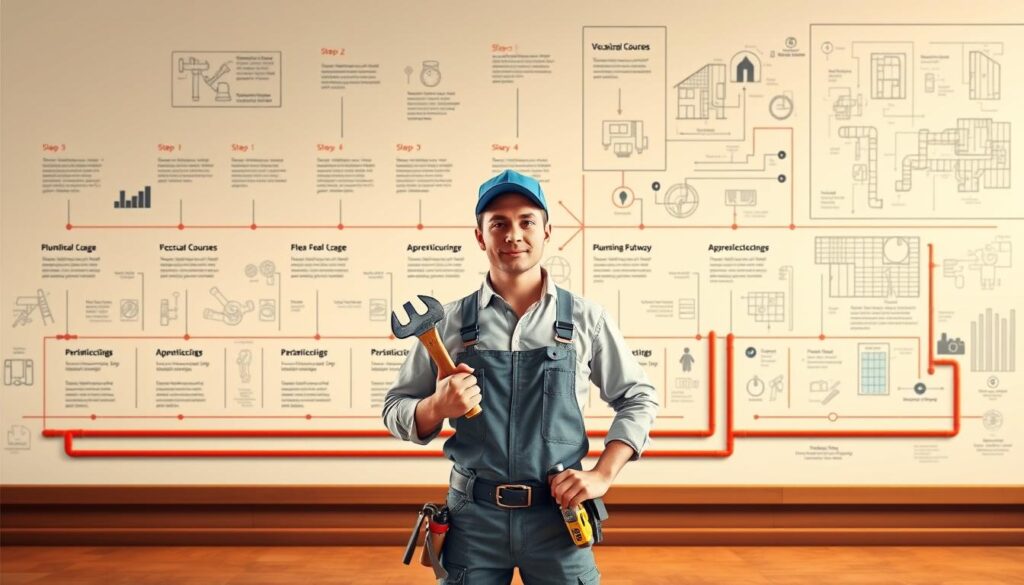
To become a professional plumber, you need a solid education and training. Your journey starts with learning technical skills and practical knowledge. Professional plumber duties require more than just classroom learning.
The path to becoming a licensed plumber involves several stages:
- Complete a high school diploma or equivalent
- Enroll in a vocational training program specializing in plumbing
- Participate in a registered apprenticeship program
- Gain hands-on experience under experienced professionals
Apprenticeship programs are key for mastering licensed plumber tasks. These programs last 4-5 years and mix classroom learning with practical experience. You’ll learn important skills like:
- Reading blueprints and technical drawings
- Understanding building codes and regulations
- Installing and repairing plumbing systems
- Using specialized tools and equipment
Plumber job responsibilities need ongoing education to keep up with new technologies and standards. Many states require continuing education credits to keep your license. This keeps you updated with the latest plumbing techniques, safety, and technology.
Certification and licensing are the last steps in your journey. Each state has its own rules, but most require passing a big exam. This exam tests your technical knowledge and practical skills.
Career Progression and Professional Development
Plumbing offers a thrilling career path with many chances for growth. Professional plumber duties go beyond simple entry-level jobs. They allow skilled workers to turn their initial training into fulfilling long-term careers.
Your journey in plumbing can be both financially rewarding and professionally fulfilling. Moving from apprentice to master plumber requires hard work, continuous learning, and strategic skill development.
Apprenticeship to Master Plumber Journey
The typical career path for plumbers includes several stages:
- Apprentice Plumber (4-5 years of training)
- Journeyman Plumber (additional 2-3 years of experience)
- Master Plumber (advanced certification and expertise)
Licensing and Certification Requirements
Licensed plumbers must meet strict professional standards. Each state has its own rules for getting and keeping plumbing licenses. These usually involve:
- Completing an apprenticeship program
- Passing detailed written exams
- Showing practical skills
- Keeping up with ongoing professional credentials
Continuing Education and Skill Updates
Plumber job duties change with new technologies. To stay ahead, professionals invest in ongoing learning through:
- Technical workshops
- Advanced certification programs
- Industry conferences
- Online training modules
By keeping up with new technologies and industry standards, you become a valuable and sought-after plumber.
Working Environments and Conditions
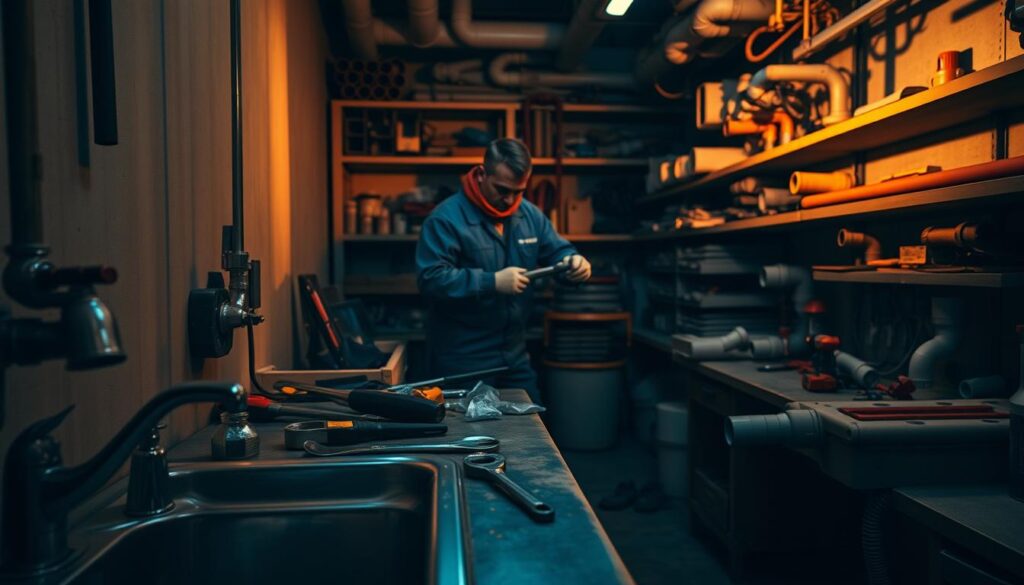
Plumbers work in many places, from cozy homes to big commercial buildings. They need to be very flexible and strong.
Your day might include crawling in tight spots, lifting heavy things, and facing tough conditions. In homes, plumbers need to be very precise. But in big buildings, they need to know a lot of technical stuff.
“A plumber’s workplace is never predictable – it’s a dynamic environment that tests physical and mental capabilities daily.” – Professional Plumbing Association
- Physical demands include strength, flexibility, and stamina
- Work environments range from residential homes to industrial facilities
- Temperature extremes from freezing basements to hot attics
- Potential exposure to various environmental conditions
Plumbers face surprises every day. They must wear safety gear to protect themselves. Your tools and safety gear are as key as your skills.
| Work Environment | Typical Challenges | Required Skills |
|---|---|---|
| Residential Settings | Limited workspace | Precision and adaptability |
| Commercial Buildings | Complex systems | Advanced technical knowledge |
| Industrial Facilities | High-pressure environments | Safety awareness |
Success in plumbing requires more than technical skills – it demands mental toughness and physical resilience.
Conclusion
Exploring what plumbers do shows they are much more than many think. Plumbing services are key to keeping our homes, businesses, and communities running well. They play a big role in keeping us safe and healthy.
Does a plumber plumb? Yes, they do. Plumbers use their skills to fix complex systems. They need to be precise, know a lot about technology, and solve problems. This job offers great chances for growth and learning.
The plumbing job needs technical skills, being able to adapt, and a commitment to learning. Plumbers work in many places, from homes to big buildings. They are essential for our modern world.
As technology gets better and buildings become more complex, plumbers will be even more important. They help keep our water clean, manage waste, and make buildings sustainable. Their work is vital in the United States.
